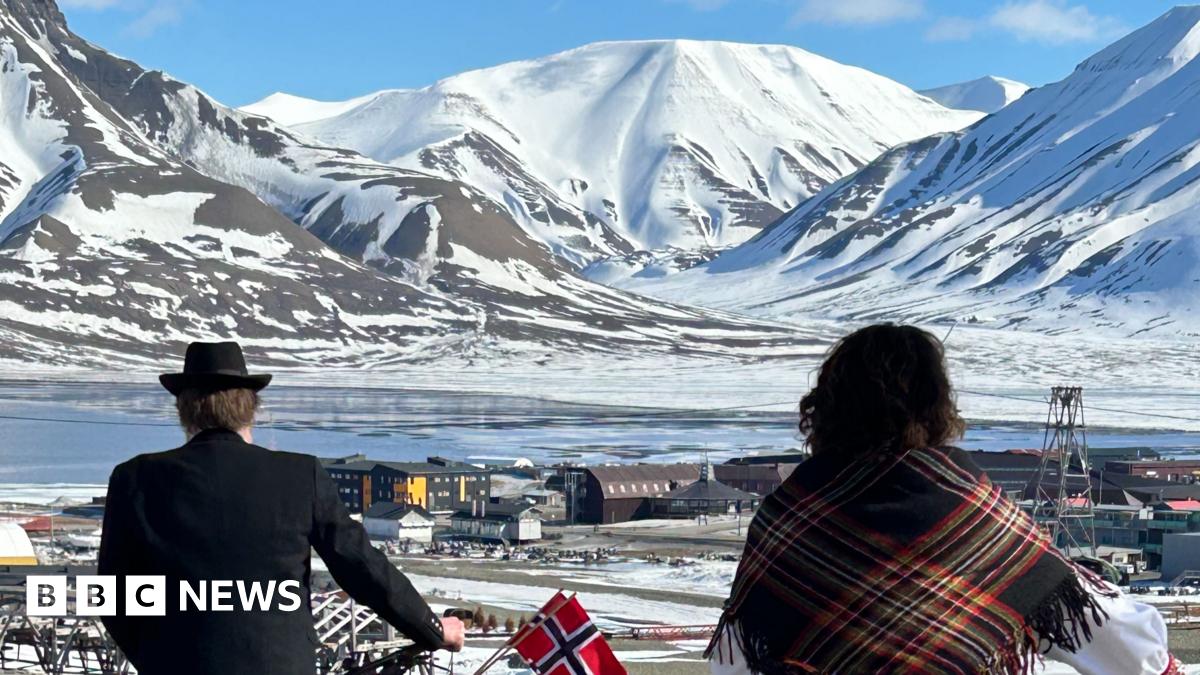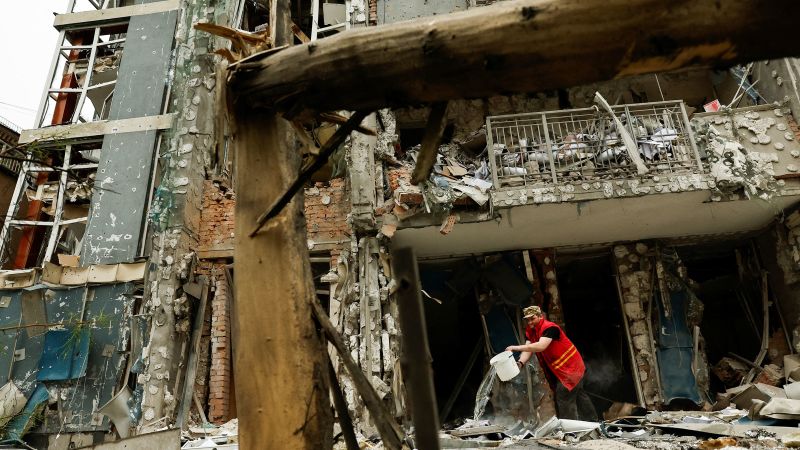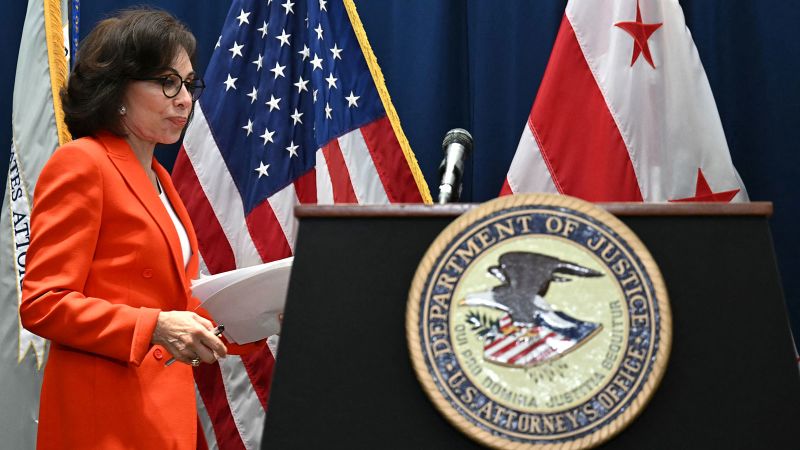The Arctic Race: Examining The Growing Tensions Between Global Powers

Welcome to your ultimate source for breaking news, trending updates, and in-depth stories from around the world. Whether it's politics, technology, entertainment, sports, or lifestyle, we bring you real-time updates that keep you informed and ahead of the curve.
Our team works tirelessly to ensure you never miss a moment. From the latest developments in global events to the most talked-about topics on social media, our news platform is designed to deliver accurate and timely information, all in one place.
Stay in the know and join thousands of readers who trust us for reliable, up-to-date content. Explore our expertly curated articles and dive deeper into the stories that matter to you. Visit Best Website now and be part of the conversation. Don't miss out on the headlines that shape our world!
Table of Contents
The Arctic Race: Examining the Growing Tensions Between Global Powers
The Arctic, once a remote and largely unexplored region, is rapidly transforming into a geopolitical hotspot. Melting ice caps are opening up new shipping routes, unlocking vast reserves of natural resources, and sparking a fierce competition between global powers. This "Arctic Race," as it's often called, is characterized by increasing tensions, strategic posturing, and a complex interplay of economic interests and national security concerns.
The Allure of the Arctic: Resources and Routes
The Arctic holds an estimated 13% of the world's undiscovered oil and 30% of its undiscovered natural gas. This immense energy potential is a major driver of the escalating competition. Beyond energy, the region is rich in minerals like rare earth elements crucial for modern technologies. Furthermore, the melting ice is opening up the Northern Sea Route, offering a significantly shorter shipping lane between Asia and Europe, potentially revolutionizing global trade. These economic opportunities are attracting significant investment and attention from nations worldwide.
Major Players in the Arctic Game:
Several nations are actively vying for influence in the Arctic:
- Russia: Holding the largest Arctic coastline, Russia has aggressively asserted its presence, modernizing its military infrastructure and strengthening its claims to the region's resources. Its Northern Fleet plays a crucial role in projecting power in the Arctic.
- United States: The US is increasing its military presence in the Arctic, modernizing its icebreakers, and engaging in diplomatic efforts to shape the region's governance. Concerns about Russian expansion and the protection of its Alaskan interests are key drivers of US Arctic policy.
- Canada: Canada, with its extensive Arctic coastline, is also a major player, emphasizing its sovereignty and asserting its rights to Arctic resources. It's investing in infrastructure and strengthening its northern military capabilities.
- China: While not an Arctic state, China has declared itself a "near-Arctic state" and is actively investing in Arctic infrastructure and research, aiming to benefit from the region's economic opportunities. This has raised concerns about its long-term ambitions in the region.
- Other Nordic Countries (Norway, Denmark, Sweden, Finland, Iceland): These nations have a long history of Arctic engagement and are actively involved in international cooperation and the sustainable management of Arctic resources. They play a crucial role in balancing the influence of larger powers.
Growing Tensions and the Need for Cooperation:
The increasing competition for Arctic resources and strategic advantages has led to heightened tensions. Military exercises, territorial disputes, and disagreements over resource management are becoming more frequent. The lack of a comprehensive international legal framework for Arctic governance further exacerbates these challenges.
The Path Forward: Balancing Competition and Cooperation:
The Arctic's future hinges on a delicate balance between competition and cooperation. While national interests will undoubtedly continue to drive individual actions, the need for international cooperation to manage the region's resources sustainably and prevent conflict is paramount. Existing international agreements, like the Arctic Council, play a vital role, but their effectiveness depends on the willingness of all stakeholders to engage constructively. Failure to find common ground could lead to escalating tensions and potentially destabilize the region.
Conclusion:
The Arctic Race is a complex and evolving geopolitical narrative. Understanding the interplay of economic interests, national security concerns, and environmental challenges is crucial for navigating this increasingly important region. The international community needs to foster dialogue, promote transparency, and develop robust mechanisms for managing Arctic resources responsibly to ensure a peaceful and sustainable future for this unique and vulnerable ecosystem. The stakes are high, and the world is watching closely.

Thank you for visiting our website, your trusted source for the latest updates and in-depth coverage on The Arctic Race: Examining The Growing Tensions Between Global Powers. We're committed to keeping you informed with timely and accurate information to meet your curiosity and needs.
If you have any questions, suggestions, or feedback, we'd love to hear from you. Your insights are valuable to us and help us improve to serve you better. Feel free to reach out through our contact page.
Don't forget to bookmark our website and check back regularly for the latest headlines and trending topics. See you next time, and thank you for being part of our growing community!
Featured Posts
-
 Who Will Win Roland Garros 2025 Analyzing The Leading Contenders Alcaraz Gauff Etc
May 26, 2025
Who Will Win Roland Garros 2025 Analyzing The Leading Contenders Alcaraz Gauff Etc
May 26, 2025 -
 Kyiv Under Attack Russia Launches Deadly Air Assault During Prisoner Swap
May 26, 2025
Kyiv Under Attack Russia Launches Deadly Air Assault During Prisoner Swap
May 26, 2025 -
 Coach Sammys Demands Increased Effort After Heavy Defeat For Wisconsin
May 26, 2025
Coach Sammys Demands Increased Effort After Heavy Defeat For Wisconsin
May 26, 2025 -
 Recession Risk And Retirement Preparing Your Savings For A Potential 2025 Tourism Slump
May 26, 2025
Recession Risk And Retirement Preparing Your Savings For A Potential 2025 Tourism Slump
May 26, 2025 -
 Analysis Jeanine Pirros Response To Israeli Embassy Tragedy
May 26, 2025
Analysis Jeanine Pirros Response To Israeli Embassy Tragedy
May 26, 2025
Latest Posts
-
 Why I M Keeping My Amazon Shares Despite Huge Gains
May 27, 2025
Why I M Keeping My Amazon Shares Despite Huge Gains
May 27, 2025 -
 Life After California An Expats Honest Reflection On Returning To Germany
May 27, 2025
Life After California An Expats Honest Reflection On Returning To Germany
May 27, 2025 -
 New Orleans Inmate Escape Investigation Reveals Seven Alleged Helpers
May 27, 2025
New Orleans Inmate Escape Investigation Reveals Seven Alleged Helpers
May 27, 2025 -
 Black Lung Prevention Falters Federal Cuts To Enforcement And Regulations
May 27, 2025
Black Lung Prevention Falters Federal Cuts To Enforcement And Regulations
May 27, 2025 -
 Memorial Day Weekend Mayhem Mass Arrests At Popular Jersey Shore Boardwalk
May 27, 2025
Memorial Day Weekend Mayhem Mass Arrests At Popular Jersey Shore Boardwalk
May 27, 2025
